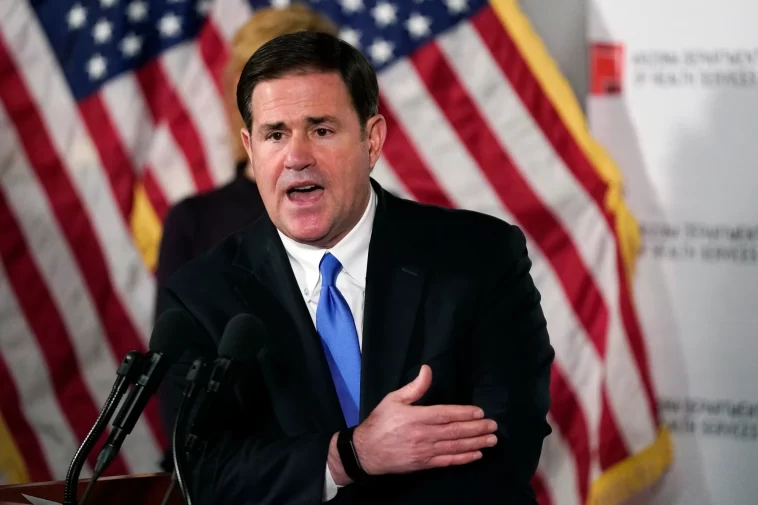Arizona Gov. Doug Ducey approved legislation on Sunday banning civilians from recording video within eight feet of “police activity”.
The bill is set to take effect in September and classifies filming police as a class 3 misdemeanor.
It is punishable by up to 30 days in jail, $500 in fines, and up to a year in probation, according to the law. Police are required to warn residents at least once before they can be charged with a crime.
“Law enforcement activity” is defined in the legislation as “questioning a suspicious person,” “conducting an arrest, issuing a summons, or enforcing the law,” and “handling an emotionally disturbed or disorderly person who is exhibiting abnormal behavior”.
Republican state Rep. John Kavanagh, the bill’s sponsor, said the law is necessary to protect police from those who “either have very poor judgment or sinister motives”.
“I’m pleased that a very reasonable law that promotes the safety of police officers and those involved in police stops and bystanders has been signed into law,” he said Friday. “It promotes everybody’s safety yet still allows people to reasonably videotape police activity as is their right”.
The law does make exceptions for people who are the direct subject of police interaction. They are allowed to film as long as they are not being arrested or searched.
If someone is in a car stopped by police or is being questioned, they are also allowed to record the interaction.
Critics of the law have argued that police officers can simply move closer to someone filming them in order to legally stop the recording.
K.M. Bell, staff attorney for the American Civil Liberties Union of Arizona, said “we’re talking about people being in public and a place they have a right to be. We’re not talking about, like somebody breaking into the [National Security Agency]”.
Earlier this year, New York City Mayor Eric Adams criticized civilians who film NYPD officers. “Stop being on top of my police officers while they’re carrying out their jobs,” he said. “That is not acceptable and it won’t be tolerated”.


